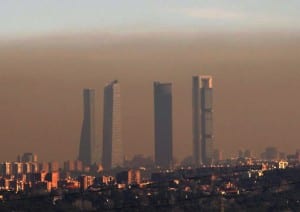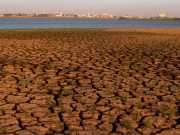CLIMATE change scientists now project that the global temperature will increase by 3.2C by 2100.
Until now, global efforts such as the Paris climate agreement have tried to limit global warming to 2C above pre-industrial levels.
But now, experts believe we are reaching the ‘point of no return’ at an alarming rate, spelling disaster for the world’s major cities.
“We still find ourselves in a situation where we are not doing nearly enough to save hundreds of millions of people from a miserable future,” said Erik Solheim, the UN environment chief, ahead of this month’s Bonn conference.
One of the biggest resulting threats to cities around the world is sea-level rise, caused by the expansion of water at higher temperatures and melting ice sheets on the north and south poles.
Scientists at the non-profit organisation Climate Central estimate that 275 million people worldwide live in areas that will eventually be flooded at 3C of global warming.

In Spain, the risk is the opposite, an intense desertification that will see temperatures resembling today’s Middle East and beyond.
Several Spanish coastal cities, from Cadiz to A Coruña, passing through Gijon, Bilbao, Malaga, Alicante, Valencia or Barcelona, face severe scenarios in the event of an increase in three-degree temperatures.
However, Climate Central highlights the risk of overheating in Madrid as an inner city, saying it will become its own ‘heat island’.
The capital is among the four worst projected sufferers of a greater increase in temperatures by 2100, surpassed only by Sofia, Skopje, and Belgrade.
The geographical peculiarities of Madrid mean a potential increase in summer temperatures of between 4.3 degrees and 8 degrees celsius.
Dozens of cities across the country could have average temperatures in summer above 45 degrees and reach records that right now seem unfathomable.
A recent study found that even if global warming is limited to 2 degrees, deserts would expand in Spain, North Africa and the Near East, while vegetation in the Mediterranean would undergo a severe change from the coasts to the mountains.
Prolonged periods of drought caused by climate change would also spark mass migration of peoples.
The study did not factor in human activity in the Mediterranean, including intensive agriculture and tree clearance.




































